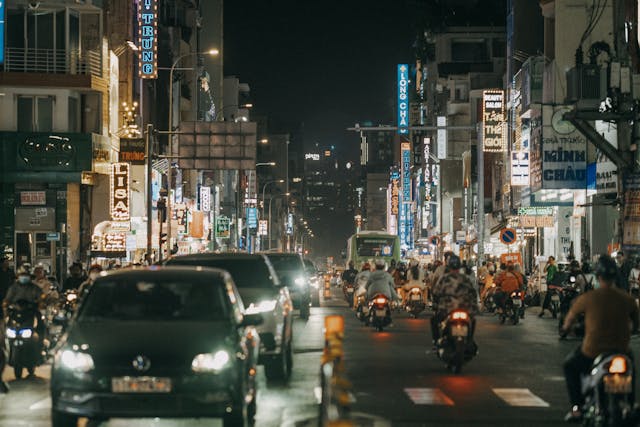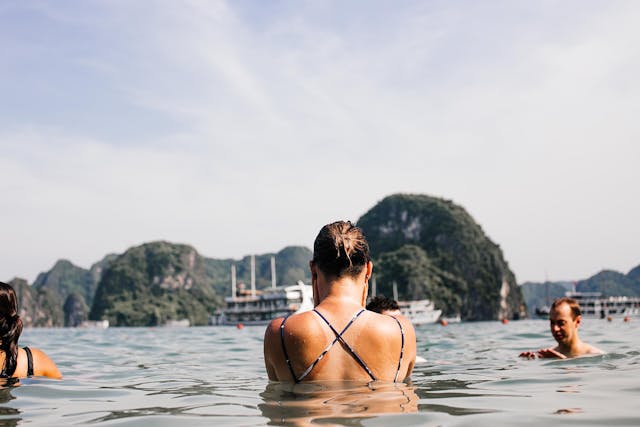Vietnam, with its rich history, stunning landscapes, and vibrant culture, is a top destination for solo travelers seeking adventure and discovery. While the country is generally safe, solo travelers should take certain precautions to ensure their journey is smooth and secure. In this guide, we’ll cover essential tips and advice on how to stay safe in Vietnam as a solo traveler.
1. Understanding the Local Culture and Etiquette
Vietnamese culture is deeply rooted in traditions and customs. Understanding and respecting local norms can help solo travelers avoid misunderstandings and gain the goodwill of locals. Dress modestly, especially when visiting religious sites or rural areas. Learn a few basic Vietnamese phrases; even a simple “hello” (xin chào) or “thank you” (cảm ơn) can go a long way in building rapport. Being polite, respectful, and aware of local customs will enhance your experience and safety.
2. Choosing the Right Accommodation
Opt for accommodations with good reviews and ratings, especially from other solo travelers. Hostels, guesthouses, and hotels in popular tourist areas like Hanoi’s Old Quarter, Ho Chi Minh City’s District 1, or the coastal town of Hoi An are generally safe and provide opportunities to meet fellow travelers. Secure accommodations should have 24-hour reception, security measures such as CCTV, and lockers or safes for valuables. Booking through reputable platforms like Booking.com, Agoda, or Airbnb can provide additional assurance.
3. Staying Connected and Informed
Keeping communication lines open is crucial for solo travelers. Purchase a local SIM card upon arrival to stay connected with family and friends. Viettel, Vinaphone, and Mobifone are popular providers offering reliable coverage and affordable data plans. Use apps like Google Maps, Grab (for transportation), and language translation apps to navigate and communicate effectively. Staying informed about local news and weather updates can also help you avoid potential hazards.
4. Navigating Transportation Safely
Transportation in Vietnam can be chaotic, but with some precautions, you can travel safely. For intra-city travel, use reputable taxi services like Mai Linh and Vinasun, or ride-hailing apps like Grab. When renting a motorbike, ensure the rental agency is reputable and the bike is in good condition. Always wear a helmet and follow traffic laws. For long-distance travel, opt for trusted bus companies like Sinh Tourist or Futa Bus Lines, or use trains for a more comfortable and scenic journey. Also, remember to use crosswalks and learn how to cross the street in Hanoi, Ho Chi Minh City, and other major cities!
5. Protecting Your Belongings
Petty theft, such as pickpocketing and bag snatching, can occur in crowded areas. Keep your belongings secure by using anti-theft backpacks, money belts, or hidden pockets. Avoid flashing valuables like jewelry, expensive cameras, or large amounts of cash. Be cautious in crowded places like markets, bus stations, and tourist attractions. Using a padlock on your backpack and securing your bag to your body can deter potential thieves.

6. Being Health-Conscious
Health and hygiene are vital aspects of travel safety. Drink bottled or boiled water to avoid waterborne illnesses, and be cautious with street food. While Vietnam’s street food is delicious, ensure you eat at stalls with good hygiene practices. Carry hand sanitizer and wet wipes for personal hygiene. It’s advisable to get vaccinations for diseases such as hepatitis A, typhoid, and tetanus before traveling. Travel insurance that covers medical expenses and emergency evacuation is also highly recommended.
7. Handling Money Safely
Managing money wisely is crucial for solo travelers. Carry a combination of cash and cards to ensure you always have access to funds. Use ATMs located in secure, well-lit areas, preferably inside banks or shopping malls. Notify your bank of your travel plans to prevent your cards from being blocked. Keep a small amount of emergency cash hidden separately from your main wallet.
8. Interacting with Locals and Other Travelers
Vietnamese people are generally friendly and hospitable, but it’s essential to exercise caution when interacting with strangers. Be wary of overly friendly individuals who may have ulterior motives. Join group tours or activities to meet other travelers in a safe environment. Sharing experiences and tips with fellow travelers can enhance your journey and provide additional safety.
9. Dealing with Scams
Scams targeting tourists are not uncommon in Vietnam. Be aware of common scams such as taxi meter rigging, overcharging, or the “broken meter” trick. Always agree on a fare before starting a journey if the meter is not used. Avoid purchasing expensive items from street vendors or dubious shops. Researching common scams and staying vigilant can help you avoid falling victim to these tactics.
10. Emergency Contacts and Local Support
Familiarize yourself with local emergency contacts such as the police (113), ambulance services (115), and your country’s embassy or consulate. Having these numbers handy can be invaluable in an emergency. Register with your embassy or consulate upon arrival to receive safety updates and support if needed.
Final Tips for Solo Travelers in Vietnam
Traveling solo in Vietnam can be an incredibly rewarding experience, filled with adventure, new friendships, and unforgettable memories. By taking the necessary precautions and staying informed, solo travelers can enjoy the beauty and culture of Vietnam safely and confidently. Embrace the journey, stay aware, and you’ll find that Vietnam is a welcoming and enchanting destination for solo explorers.
Featured Image: Solo Travel in Vietnam | Photo by Rachel Claire
Read more Vietnam travel articles.

